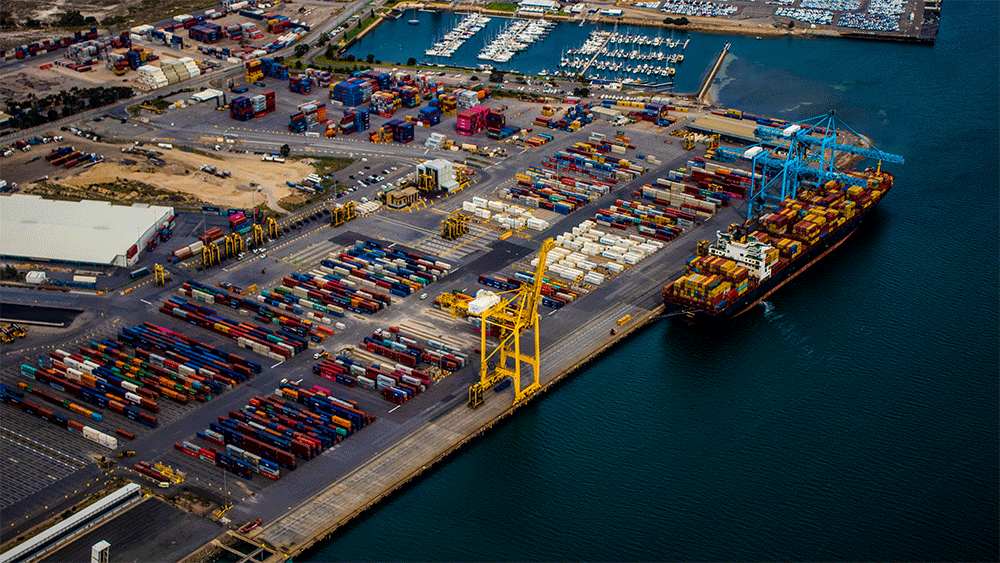
If you have global shipping needs or desires, it’s important to align yourself with an international freight forwarder that can meet those needs. If you want to ship to or from Europe, you’d better hope your forwarder can do that.
For three decades, we’ve been helping businesses like yours ship their products globally — and understand what it takes to ship anywhere in the world.
In this blog, we’ll highlight why it’s important for your international freight forwarder to be a part of a global freight network and which networks should matter to you.
What is a Freight Forwarding Network?
Global freight networks are large groups of well-vetted international freight forwarders that work together to serve the needs of global shippers. Each network has its own set of standards that each forwarder must meet to be a part of the network.
While there are hundreds of groups across the world, they can vary drastically in size. Some serve global needs and have thousands of member freight forwarders. Others can have very local or specialty focuses and consist of a few dozen forwarders.
Why Are International Freight Forwarders in Freight Networks?
The reason international freight forwarders would choose whether or not to be a part of a freight forwarding network depends on the shipping needs they’re trying to serve.
Servicing Customers’ Needs
Let’s use ATS International as an example. We have our main corporate office in Minnesota, plus a couple of other locations in the U.S., including Puerto Rico. We also have a European office in Germany.
So, hypothetically, if our business goals were to become the best freight forwarder between Germany and the U.S., there wouldn’t be much need to be a part of a network. However, we strive to be a global freight forwarder, so we need partnerships to be able to serve customers in every country.
Having offices in every country is not only expensive, but it’s also unrealistic. You might be wondering, “well, why can’t you serve every country from your existing offices?”
Clear Communication
While that’s a fair question, consider this. Even within the U.S., different parts of the country use different lingo, but Americans tend to understand what other Americans mean. Expand that across the world though and it’s a whole different ball game. (If you’re not from America, the lingo I just used may not resonate. See what I did there?)
All that to say, you tend to communicate better with people from where you’re from. You understand each other easier, which leads to more streamlined service.

Time
Beyond communication, time zones present challenges too. Let’s use the U.S. and Germany as examples again. Even if both parties speak the same language and use the same lingo, they’re several hours apart.
Most people in the global transportation industry try to work a normal 8-5 shift (yes, I understand that’s not always possible). So, you’d be looking at only a couple of hours of overlap time to coordinate with a live person, as opposed to email chains back and forth. Yes, email can be great, but sometimes it’s best to be able to pick up the phone and talk through things. That’s much easier when the other person isn’t sleeping.
Convenience
International shipping can be complicated. If you’ve been in the industry for any amount of time, that’s probably not news to you. That’s likely why you work with a freight forwarder in the first place.
That way, you don’t have to coordinate a pre-carriage truck, port services, a vessel to ship overseas, more port fees, the list goes on. Instead, you work with a freight forwarder who does that work for you, but you only pay the forwarder directly.
Like working with a freight forwarder, being in a forwarding network provides the ability to make one payment to one company. Then that person can coordinate the different services and payments for the shipment in a country that your freight forwarder may not have an office in.
Protection
Most freight forwarding networks provide members $100,000 of insurance coverage as part of the membership benefits. Not only does this protect the freight forwarders, but it also protects shippers. That way, if something — or someone — falls through on a shipment, you’re covered. And in the shipping industry, it’s not a matter of if, but rather when something goes wrong.

Which Forwarder Networks Matter?
To answer the question of which networks are important, you have to consider your own needs. For example, if a freight forwarder you’re researching is part of several container shipping networks, but you only ship breakbulk cargoes, that doesn’t mean anything to you. Instead, you should look for freight forwarders that are part of networks that match your needs.
That said, here are a few of the most well-known forwarder networks:
- WCAworld
- Global Freight Alliance (GFA)
- Global Logistics Network
- The World Freight Alliance
- Octopus Freight Network (OFN)
There are many other options out there, but what’s important to note is what each group specializes in.
For example, if you have global shipping needs and your top priority is to be able to ship anywhere — and I mean virtually anywhere — then having a freight forwarder that’s part of one of the 15 WCA networks is important. They’re the largest network and serve 192 countries, so chances are good your needs can be served by a WCA member.
However, if your top priority is to only have the best-of-the-best transport your cargo, you may want to look for a forwarder that’s part of a more “exclusive” network, like OFN. OFN only accepts a certain number of forwarders from each country using their specific sets of criteria.
That said, just because a freight forwarder is a part of WCA doesn’t mean they’re not a quality forwarder. But WCA accepts any forwarder that wants to be in the network, so chances are higher the international freight forwarder may not meet your standards.
Another thing to note is what criteria the exclusive forwarder networks use. If their priorities don’t align with your priorities, then the fact that an international freight forwarder was “exclusive” enough to get into that network shouldn’t matter to you.
Membership Is What the Freight Forwarder Makes of It
Just because an international freight forwarder is part of a network doesn’t mean they’re taking advantage of it. It’s all about what they make of it — and it takes time and money to do it right.

Like any carrier or freight brokerage in your area, a key to success in transportation is creating quality, trusting relationships. That’s no different when it comes to these freight forwarding networks.
Especially with WCA, it’s simple to pay the fees and join. But when it comes time to execute a shipment, unless the freight forwarder has built relationships with other members, it will be very transactional.
When done right, international freight forwarders can have “offices” in many countries. What I mean is these relationships can be much more than calling up a fellow network member and saying, “Hey, can you help us move this?” and then moving on.
Instead, if they build those relationships over time, they can keep working with the same people every time — enough for that person to understand their needs (and your needs too, by the way). In those cases, your freight forwarder has an extension of their company located in other countries — even if they don’t have an actual office there.
Those relationships go both ways, of course. The fellow network member may help your freight forwarder one day, then your freight forwarder may help them the next. That dynamic creates a strong relationship that lasts.
Is Your Freight Forwarder Part of a Global Forwarding Network?
As you evaluate your international freight forwarder — or consider working with one for the first time — it’s important to consider how well-connected they are. After all, the world is a big place. So if you have global shipping needs, you need global coverage.
One of the most important ways for international freight forwarders to fulfill global shipping needs is by being a member of a global forwarding network. But it’s about more than that. Make sure your freight forwarder is a part of networks that support your shipping needs — and an active member.
Once you figure out which networks — big or small — support your shipping needs, you should be able to find a reliable freight forwarder that can support your needs too.



